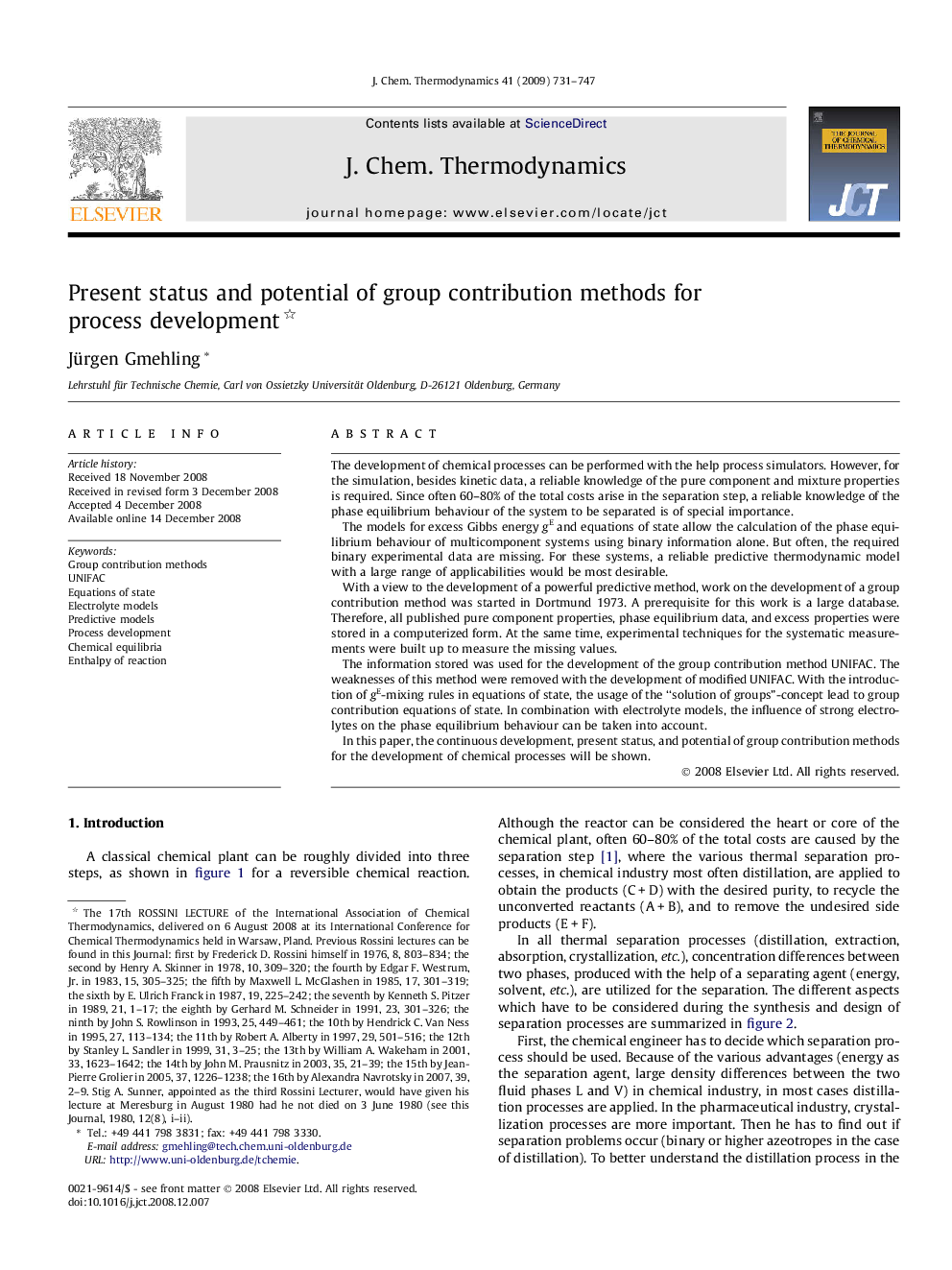| Article ID | Journal | Published Year | Pages | File Type |
|---|---|---|---|---|
| 217180 | The Journal of Chemical Thermodynamics | 2009 | 17 Pages |
The development of chemical processes can be performed with the help process simulators. However, for the simulation, besides kinetic data, a reliable knowledge of the pure component and mixture properties is required. Since often 60–80% of the total costs arise in the separation step, a reliable knowledge of the phase equilibrium behaviour of the system to be separated is of special importance.The models for excess Gibbs energy gE and equations of state allow the calculation of the phase equilibrium behaviour of multicomponent systems using binary information alone. But often, the required binary experimental data are missing. For these systems, a reliable predictive thermodynamic model with a large range of applicabilities would be most desirable.With a view to the development of a powerful predictive method, work on the development of a group contribution method was started in Dortmund 1973. A prerequisite for this work is a large database. Therefore, all published pure component properties, phase equilibrium data, and excess properties were stored in a computerized form. At the same time, experimental techniques for the systematic measurements were built up to measure the missing values.The information stored was used for the development of the group contribution method UNIFAC. The weaknesses of this method were removed with the development of modified UNIFAC. With the introduction of gE-mixing rules in equations of state, the usage of the “solution of groups”-concept lead to group contribution equations of state. In combination with electrolyte models, the influence of strong electrolytes on the phase equilibrium behaviour can be taken into account.In this paper, the continuous development, present status, and potential of group contribution methods for the development of chemical processes will be shown.
